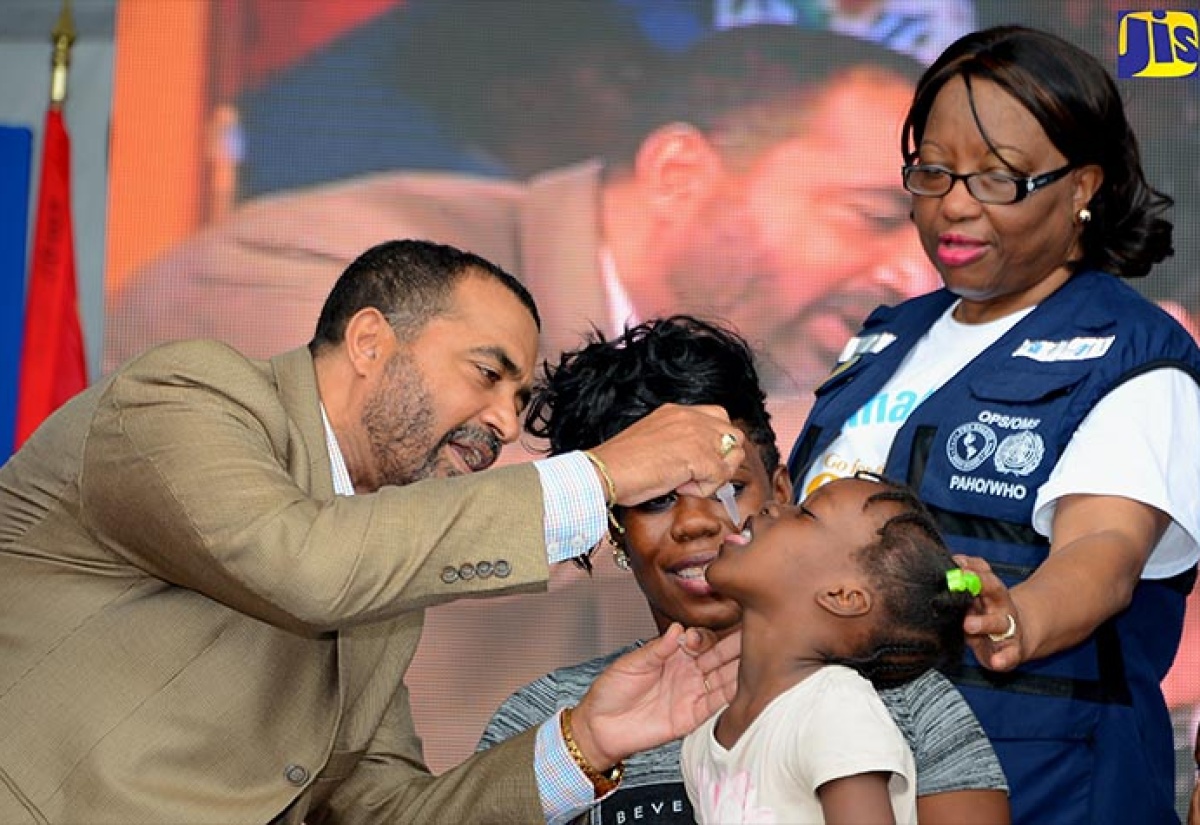Parents Urged to Have Children Fully Vaccinated
By: , August 30, 2017The Key Point:
The Facts
- A child who attends school without being immunised is highly susceptible to contracting life-threatening diseases and also poses a potentially serious public health risk to others.
- Additionally, parents are reminded to carry the Child Health and Development Passport to immunisation appointments.
The Full Story
The Health Ministry is reminding parents to ensure that their children are fully vaccinated before sending them to school in the new school year.
Vaccinations are given to prevent 10 diseases that have historically proven harmful to children, causing serious complications and even death, including polio, measles, mumps, rubella, diphtheria, pertussis (whooping cough), tetanus and hepatitis B.
The vaccines are commonly administered by drops in the mouth or through injections.
Programme Development Officer in the Family Health Unit at the Ministry of Health, Dr. Julia Rowe Porter, told JIS News that it is mandatory for children to be vaccinated for these diseases before attending school.
The Ministry, therefore, mandates that children entering day care, preschool, nursery, primary and prep school must be properly vaccinated.
“There is a vaccination schedule that starts at birth and the vaccination schedule that every child must adhere to, and this goes up to the age of six. Once they enter primary school or prep school, which will be children around seven years of age, they should be adequately and fully immunised to enter,” she said.
Dr. Rowe Porter pointed out that the vaccines are the first line of defence to protect a child’s underdeveloped immune system against diseases.
“Vaccines are not treatment. They are given to prevent you from getting sick if you come in contact with the germ. You have to get the vaccine before you are exposed to the germ, so that the immune system will already have the antibodies ready and on hand so that once you are exposed to the germ, then your body can mount an effective and increased immune response to prevent you from getting sick,” she explained.
Dr. Rowe Porter said that a child who attends school without being immunised is highly susceptible to contracting life-threatening diseases and also poses a potentially serious public health risk to others.
“If children are not protected and they enter a school setting, then there is a risk that the child will be exposed to diseases. Also, if we get an imported case of one of these diseases and children are not vaccinated, this can start an outbreak among the children in school, so it is important for every child to be vaccinated so we can protect all children that are in schools, their families and the wider society,” she said.
Under the amended 1985 Public Health Act, persons who knowingly allow a child to attend school without being adequately vaccinated may be fined up to $1 million or face a prison term not exceeding one year.
These penalties are applicable to parents/guardians, principals and heads of educational institutions and health officials.
Parents can take their children to any of the 300 public health centres across the island and hospitals that offer vaccination services free of cost. Immunisation services are also available at private doctors or paediatricians for a nominal fee.
Additionally, parents are reminded to carry the Child Health and Development Passport to immunisation appointments.
The Passport, which replaced immunisation cards in 2010, tracks the development of Jamaican children, providing comprehensive health records for children from birth to age 17.


